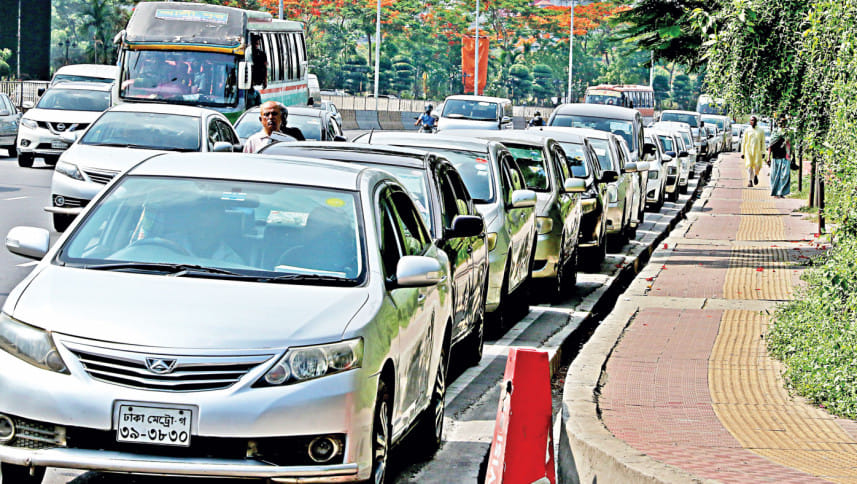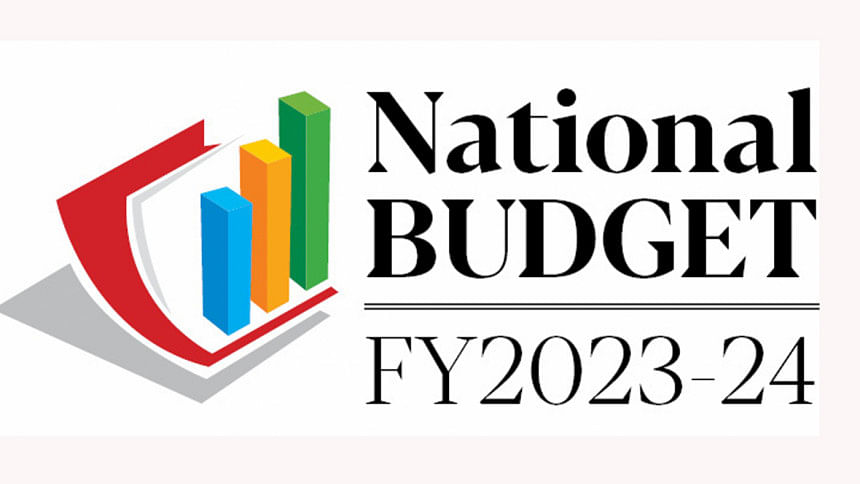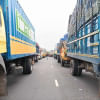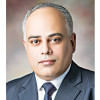Surcharge likely on second car

Owners of more than one car are likely to face an environmental protection surcharge from the upcoming fiscal year as the government plans to discourage the use of vehicles in a bid to contain carbon emissions and air pollution.
According to the plan, the owners of multiple passenger cars, jeeps and microbuses may have to pay the surcharge depending on their engine capacity.
"We are considering imposing a carbon tax to discourage the rising use of personal vehicles and curb pollution. This tax exists in various other countries too," said a senior official of the finance ministry.
The finance minister is expected to propose the surcharge while placing the budget for 2023-24 in parliament on June 1.
We are planning to collect the surcharge from all car owners, including companies and firms. If a company has more than one vehicle, it is likely to come under the carbon tax
Officials said the carbon tax is imposed on industries too in other countries. But Bangladesh may introduce the tax in FY24 and start with jeeps and cars.
The move comes at a time when an increasing number of personal cars are hitting the streets, particularly in the capital city, which suffers from serious air pollution and huge traffic congestion.
Bangladesh has more than 57 lakh registered vehicles and the number of personal passenger cars, jeeps and microbuses stands at over 600,000, data from the Bangladesh Road Transport Authority showed.
The finance ministry official said the partial operation of the metro-rail has already improved the public transport system in Dhaka and it would give a further boost when it runs in full swing.

As per the finance ministry's plan, owners of cars up to 1,500cc may need to pay Tk 25,000 in surcharge for every vehicle after the first one. The amount is equal to the advance tax that a car owner has to pay to the state coffer.
The surcharge will double to Tk 50,000 for the second and subsequent vehicles that have an engine capacity of 1501cc to 2,000cc.
The tax authority considers slapping Tk 75,000 as the environmental protection surcharge on every second car, jeep or microbus with a capacity of 2,001cc to 2,500cc. The amount is equal to the withholding tax that a car owner has to pay during the renewal of the fitness of a vehicle.
The amount rises for the owners of vehicles with an engine capacity of more than 2,500cc, said officials.
For example, a person, company or firm that owns second or third cars over 3,000cc is likely to face Tk 200,000 as the environmental protection surcharge, which is 33 per cent higher than the advance tax levied on such vehicles.
In the case of possession of second cars or jeeps with 3,500cc and above engine capacity, the amount of surcharge may be Tk 350,000, up 75 per cent from the withholding tax for the vehicle.
Officials said the tax authority may slap rules that the surcharge will have to pay during the registration or renewal of fitness of vehicles.
Ahmad Kamruzzaman Majumder, dean of the science faculty and the chairman of the Department of Environmental Science at Stamford University Bangladesh, welcomes the carbon tax move.
"This is a timely decision. Bangladesh has more than 57 lakh vehicles and Dhaka accounts for one-third of them. Every day new cars are hitting the streets of the capital although the city does not have the carrying capacity. It is needed to halt this and protect the environment," he said.
He said public transport, mainly buses, is polluting the environment more than personal cars. "But it is a good initiative to collect surcharges from rich taxpayers."
The surcharge that will be collected should be used to cut carbon emissions, he added.

 For all latest news, follow The Daily Star's Google News channel.
For all latest news, follow The Daily Star's Google News channel. 










Comments